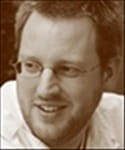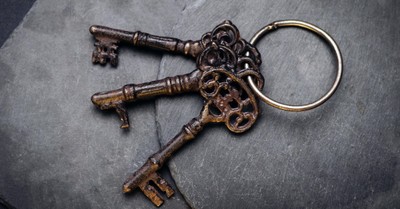Books I Didn't Review
-
Tim Challies Tim Challies' Blog
- Updated Aug 21, 2009
Here is (yet) another list of books I read that will not be receiving extensive reviews.
Shakedown by Ezra Levant. Unless you are Canadian, you have probably not heard of Ezra Levant. Let me fill you in. Several years ago he was publisher of Western Standard magazine and made the decision to print the infamous Danish cartoons depicting the prophet Mohammed. He did so because they were newsworthy and he wanted to use them to illustrate a story. He soon found himself before his province's Human Rights and Citizenship Commission where he was charged with the offense of "discrimination." It was only after a long, embittered and expensive fight that he managed to avoid charges becoming, I believe, the first person to be cleared of such crimes. He wrote Shakedown to record his experience and to draw attention to these Human Rights tribunals that happen all over Canada and which have taken for themselves outrageous powers that circumvent all manner of justice. In fact, they get awfully close to charging Canadians for "thoughtcrime," that Orwellian phrase that looks beyond what a person has actually done to what he may have intended to do. His story is shocking and, we hope, marks the beginning of the end for the Human Rights Commissions' most intrusive and outrageous powers. (Do note, that those these commissions exist and exist all over the country, the vast majority of Canadians, even ones who are outspoken about their faith, have never been noticed or charged by them).
Culture of Corruption by Michelle Malkin.
In this book, currently perched at the top of the New York Times list
of Bestsellers, Malkin looks to "Obama and His Team of Tax Cheats,
Crooks, and Cronies." In chapter after chapter totalling almost 300
pages, Malkin provides an exhaustive look at President Obama and the
men and women who work with him. She provides extensive documentation,
making much of what she says awfully difficult to refute (though, of
course, she focuses almost exclusively on what these people have done
wrong, not on what they may have done well over their careers). It
somehow manages to be shocking and yet not at all surprising to hear of
the massive amounts of corruption and immorality in Obama's inner
circle. After all, power typically comes to those who fight for it and
even more typically to those who fight for it tooth and nail. While I
would imagine that almost every administration has multitudes of
skeletons in the closet, surely not all have so many as Obama's. I'm
glad these people are running your country rather than mine!
The Man Who Made Lists by Joshua Kendall.
I picked up this book rather on a whim as I was scouring my local
bookstore. It is a biography of Peter Mark Roget, best known for
creating his famous thesaurus. It traces the life of a man who was a
very odd but still compelling character. As his biographer says,
"Though he had a host of female admirers, was one of the first to test
the effects of laughing gas, developed the slide rule, and narrowly
escaped jail in Napoleon's France, he is best known for making lists."
And make lists he did with an almost obsessive passion. Though Kendall
occasionally steps beyond what he actually could know from the
historical record into the realm of conjecture, he still crafts an
interesting biography of a strangely fascinating man.
In the President's Secret Service by Ronald Kessler.
The dust cover for In the President's Secret Service proclaims, "Never
before has a journalist penetrated the wall of secrecy that surrounds
the U.S. Secret Service. … After conducting exclusive interviews with
more than one hundred current and former Secret Service agents,
bestselling author and award-winning reporter Ronald Kessler reveals
their secrets for the first time." It may be true that no journalist
has penetrated that wall of secrecy until Kesller. The problem, though,
is that this wall of secrecy broke down enough for him to write a book,
it remained in place enough that he was not able to cite or document
what he discovered. Hence we have a book, a bestselling book, that is
crammed full of unsubstantiated assertions. Now this is not to say that
Kesller has just fabricated what he presents as fact. But any historian
worth his degree will balk and know that little that Kesller says has
any historic value.
In the President's Secret Service is, in a sense, two books. On one hand it is a book about the Secret Service, detailing how the organization came to be, how it has evolved over the years, and telling how it works, even today. This side of the book offers little that is original. On the other hand, this is a tell-all of sorts, where Kesller shares what he learned during his interviews with former Secret Service agents. This is the part of the book that has received much attention in the press. With one chapter dedicated to every President since Kennedy, Kessler shares some of the behind-the-scenes facts about each of them. He tells how Jimmy Carter was considered the most arrogant and obnoxious of the President's; how Kennedy's agents were constantly on the guard during his trysts, guarding against his wife blundering into one of his affairs; how Lyndon Johnson engaged in constant philandering at the White House and at his ranch; how George and Barbara Bush were very kind to their agents, almost welcoming them into their family and even remaining at the White House over Christmas so the agents would not have to be on the road for the holiday. It is mostly the kind of facts we would assume based on the character of the Presidents. The reader who is surprised to learn that Kennedy was sleeping with Marilyn Monroe or that Jenna Bush was hardly an ideal person to guard is a person who has not done a lot of reading. But even here, Kessler, by his inability (or refusal) to cite his work gives us little reason to trust him or to believe that he has done any more than read a couple of books and filled in the gaps in a could-be-true way.
In the President's Secret Service is tabloid history packaged with undergraduate-level research on the Secret Service. It is interesting at a gossipy, human-interest level, but as serious history it fails badly. The writing is mostly passable but, as I see it, a sentence like this deserves no place in a serious work of non-fiction: "As with all Presidents, some people totally lost it when meeting Regan" (116). That is, like, totally unacceptable. Where was Kessler's editor?
The serious chapters in this book seem like an attempt to legitimize the tabloid qualities. The sordid stories of America's leaders have been used to sell the book, drawing people into a title that would otherwise be of little interest. Kessler also attempts to lend the book some legitimacy by seeking to show that the Secret Service is underfunded and underequipped for their role and that, if the situation is not remedied, at some point they will lose one of the people they seek to protect. While this may be true, Kessler fails to be convincing, perhaps largely because of the very nature of the book which is, at its heart, just not very serious.


















